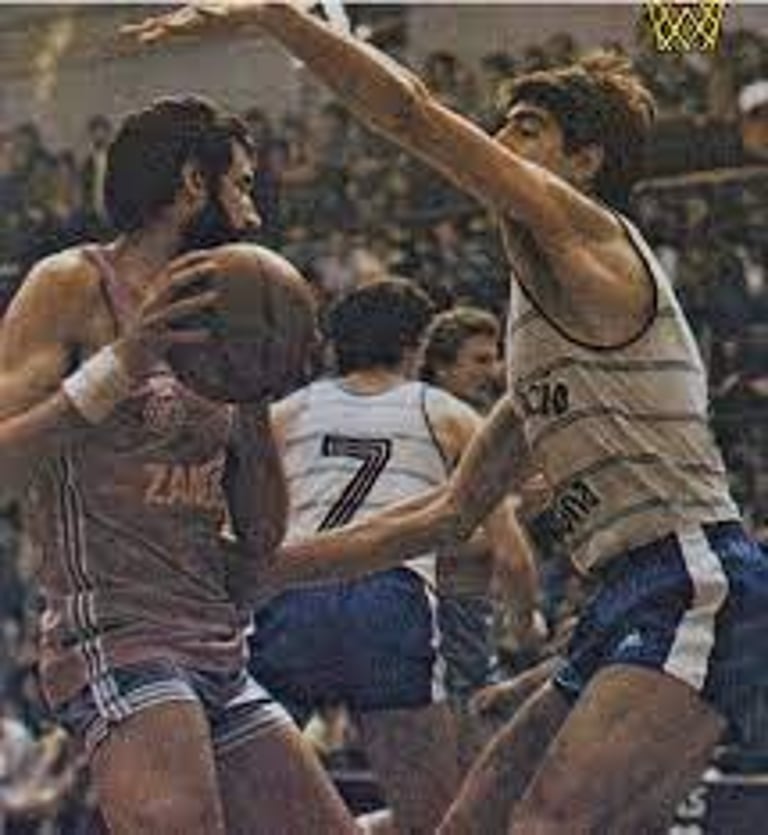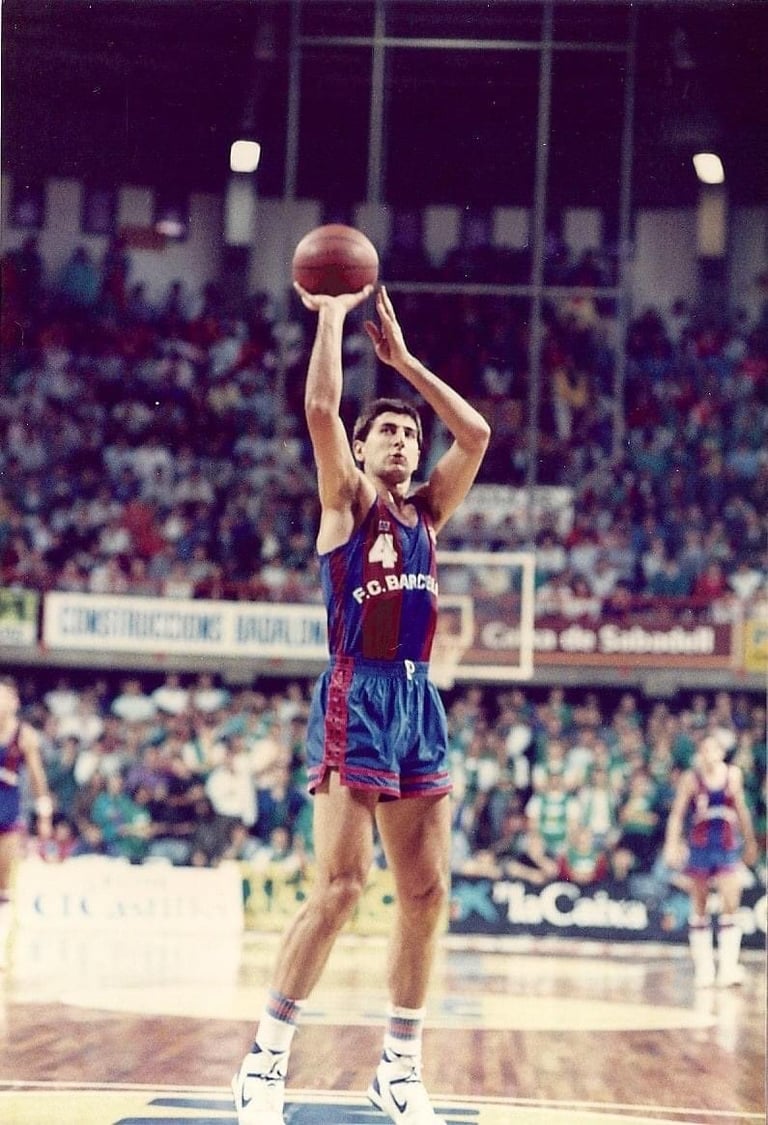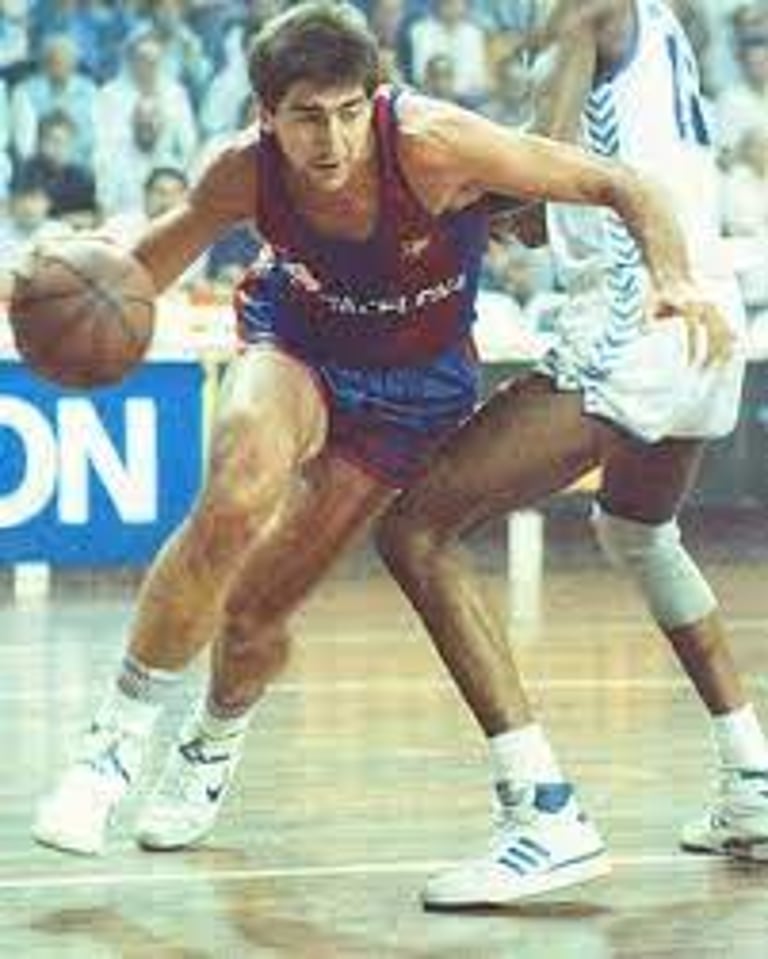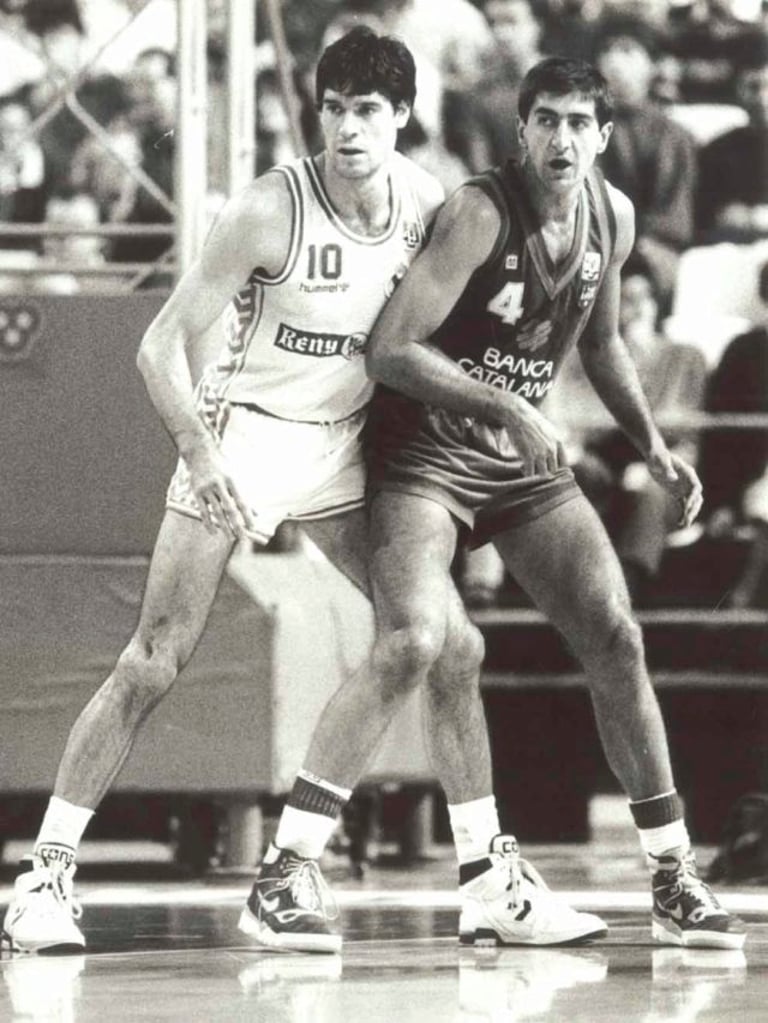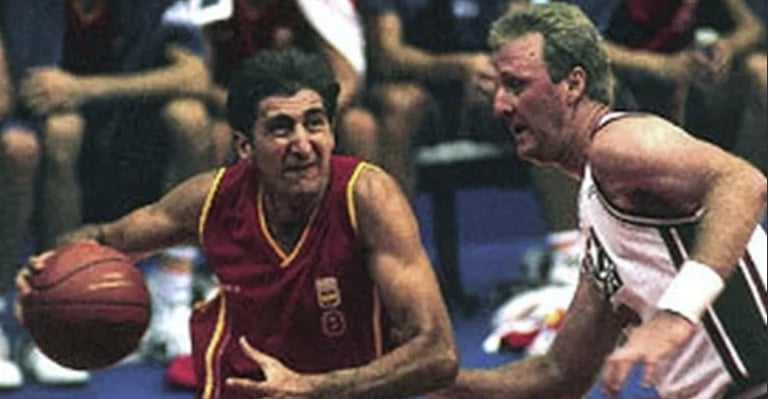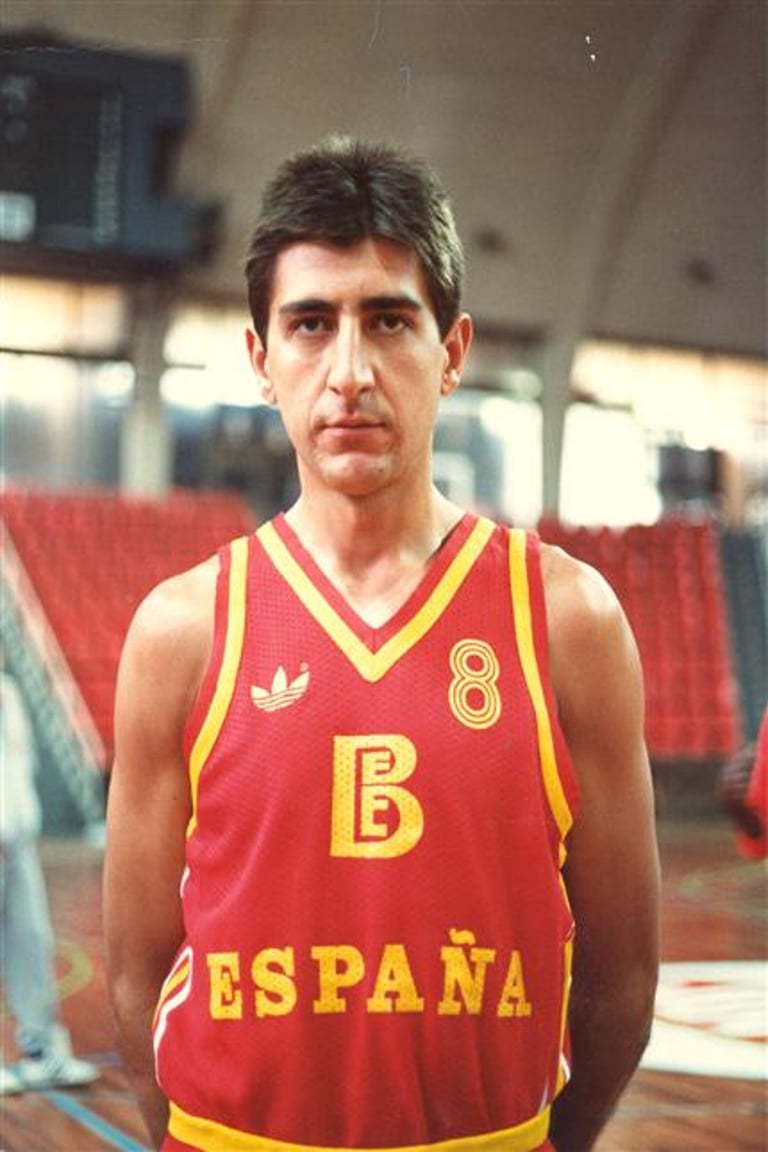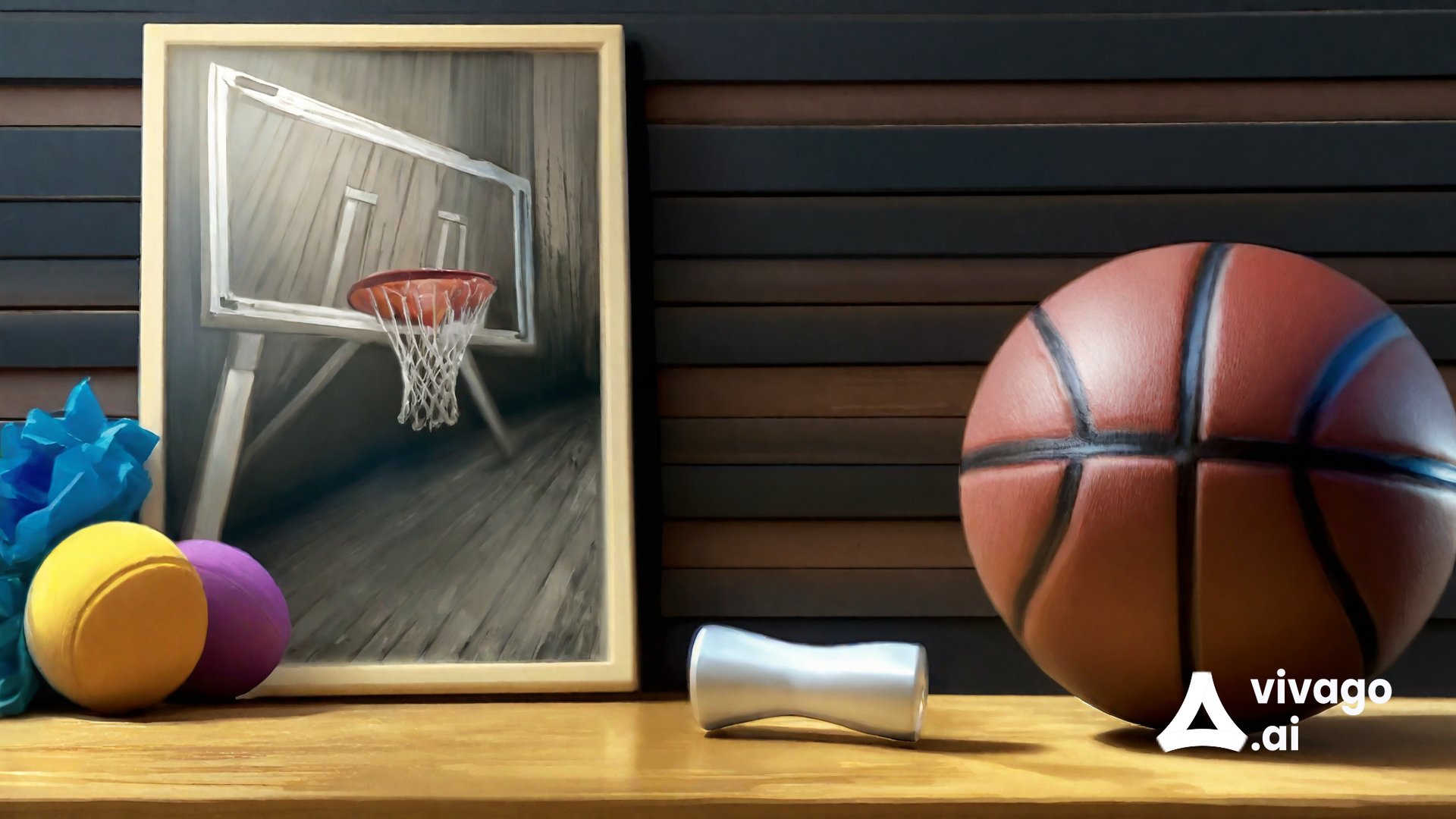
Andrés Jiménez
"Jímix"
RETROPLAYERS
Antreas Tsemperlidis
6/12/20253 min read
One of the greatest big men in Spanish basketball history and also one of the most recognizable noses in European basketball, which earned him the nickname "Pinocchio." However, he prefers “Jímix,” the name he uses to sign the comics he draws -yes, Andrés Jiménez is also a talented comic artist- has recently celebrated his 63rd birthday.
The career of the Seville-born power forward is deeply linked to two icons of Spanish basketball: one club and one man - FC Barcelona and Aíto García Reneses. Aíto was the first coach to recognize Andrés’s talent and, in 1978, made him a member of the legendary Cotonificio Badalona at just 16 years old, alongside players like "Rambo" Héctor Perotas, Agustín Cuesta, and Quim Costa, teammates he would later reunite with in Barcelona. This team is remembered in Spanish basketball history for several innovations introduced by Reneses, such as practicing twice a day, the intense “karate press” defense and his insistence on leveraging Jiménez’s speed, who despite being 2.06 meters tall was often the primary finisher on fast breaks. With a very modest budget but great faith in young talent, Cotonificio reached 4th place in 1978 and the Korac Cup semifinals the following year. By 1982, they were consistently in the top five and qualifying for European competitions. In 1983, Reneses moved to Joventut Badalona and his first request to the management was to sign Jiménez, by then a European silver medallist with the "Furia Roja." With "Pinocchio" on board, the team climbed all the way from a 7th-place finish to reaching the top three and the 1985 finals against Real Madrid.

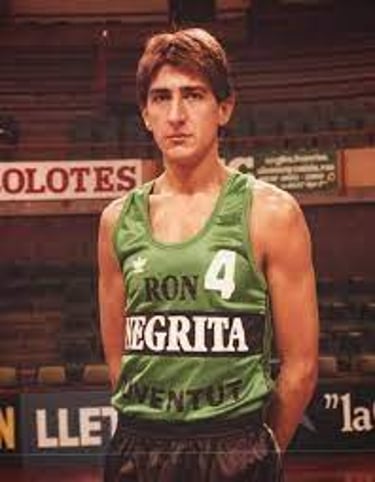


By 1986, Jiménez, now 24 and hungry for titles, followed his mentor to the "Blaugrana" side of Barcelona. After the Spanish World Championship, he signed with Barça and claimed the starting role wearing jersey number 4. He fit perfectly into the lineup, often playing as a small forward (position 3), and even began shooting more from the perimeter. As expected, the trophies followed: the 1987 Korac Cup marked the beginning, followed by four straight Spanish league titles. Reneses’s team thrived on explosive transition play and when Barcelona decided to run the floor, they were trully unstoppable. With their fast-paced style, Barça and Jiménez made three consecutive runs at the EuroLeague title but fell to the legendary “Yugoplastika" babies team -in the 1989 semifinal and the finals in Zaragoza (1990) and Paris (1991). In the 1991 Paris Final Four, Jiménez was sidelined by injury and watched from the stands alongside Reneses, who was by then serving as a technical advisor. That injury also caused him to miss the league finals and the chance to win another medal with the national team at EuroBasket in Rome. He returned the following season but had lost his starting role. Still, his experience and skill made him an invaluable bench contributor to Reneses, who had returned to the benches in order coach Barça again. However, the league landscape had shifted: Joventut and Real Madrid dominated for the next four years. Barça returned to the top in 1995, but the EuroLeague title remained elusive. The vicious circle of “The Lost Final Fours" was replayed twice more in Tel Aviv and again in Paris, with a familiar heartbreak.
As his career neared its end, Jiménez softened the pain of those missed titles with three consecutive league championships, including a dramatic playoff win over Real Madrid in 1997. That would be his final flourish. The following summer, he retired, hanging up his number 4 jersey and receiving standing ovations in every Spanish arena being the last active player from Spain’s historic silver-medal-winning 1984 Olympic team.
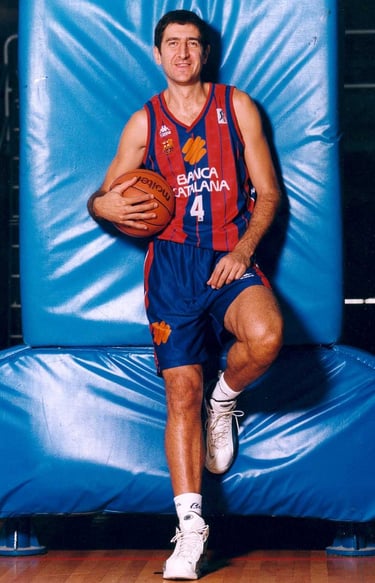
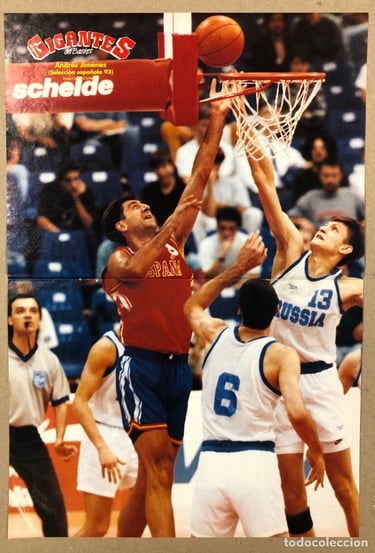


"Pinocchio" marked an era in Spanish basketball as one of Europe’s top players—blessed with speed, finesse, brilliant footwork near the basket, and a reliable perimeter shot. As Lolo Sainz once said: Epi was the scorer, Solozábal the brain, Norris the raw power—but Andrés Jiménez "was the difference-maker." According to Antonio Díaz, for "La Furia Roja," Jiménez was “more important than James Worthy was to the Lakers.”
